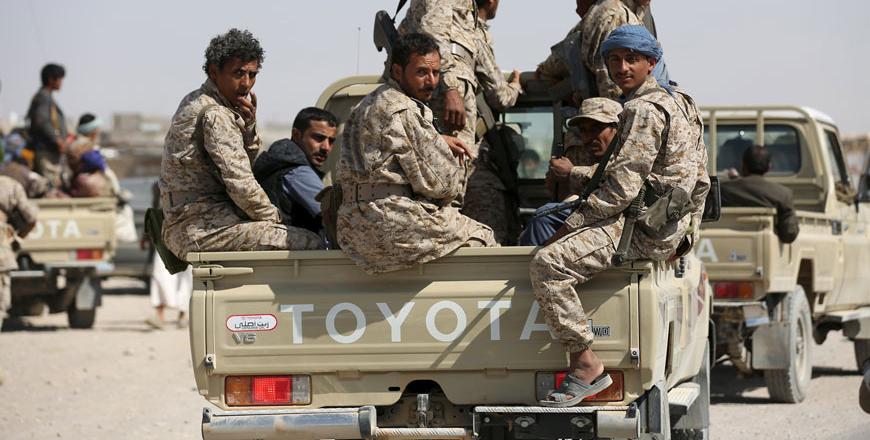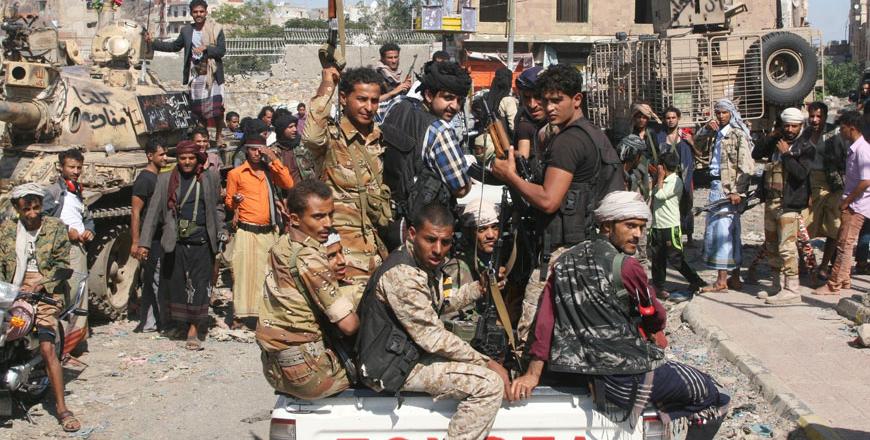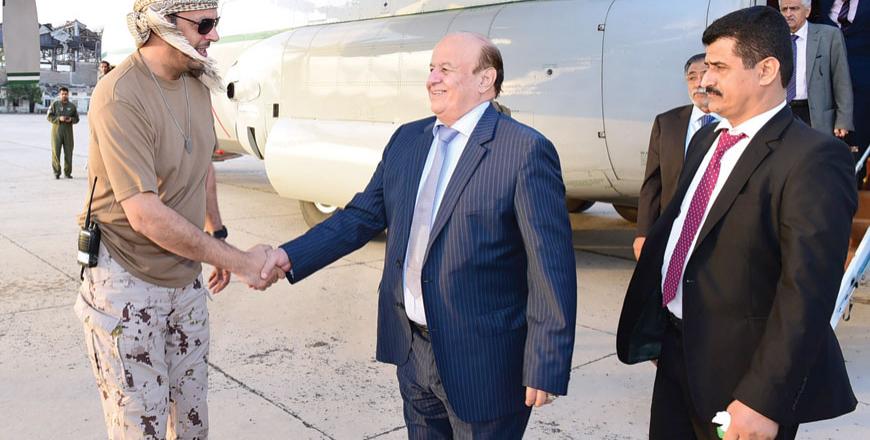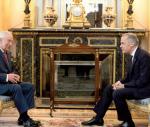You are here
Landmines slow key advance by Yemen loyalists
By AFP - Nov 22,2015 - Last updated at Nov 22,2015

Soldiers loyal to Yemen’s government ride on the back of a truck during a visit by the country’s vice president and prime minister, Khaled Bahah, to the northern province of Marib on Sunday (Reuters photo)
ADEN — Pro-government forces in Yemen pressed their advance Sunday to recapture the southwestern province of Taez but were slowed by landmines planted by Shiite rebels, military officials said.
Government forces backed by air and ground support from a Saudi-led coalition launched an all-out offensive last week to push the Iran-backed rebels out of Taez and break the siege of loyalists in its provincial capital.
"We have advanced after having cleared and destroyed a large quantity of anti-personnel and anti-tank mines planted by the Houthi rebels and their allies" amongst renegade troops loyal to former president Ali Abdullah Saleh, a military official said.
Troops and allied Popular Resistance fighters had advanced towards Rahida, the province's second-largest city, on the road linking main southern city Aden with Taez, the official said.
Four Houthis were killed and two others captured in an ambush by loyalists that targeted two rebel patrols south of Rahida, he said.
A Yemeni commander confirmed that mines were hampering the progress of government forces and had caused casualties among fighters, without providing any figures.
Loyalist forces were backed by significant reinforcements from the Saudi-led coalition which intervened in March in support of President Abed Rabbo Mansour Hadi.
Breaking the siege of Taez is seen as crucial for the recapture of other central provinces and for opening the way to the rebel-held capital Sanaa farther north.
It is also important for securing the south, where loyalists have retaken five provinces from the rebels since July, including Aden, where Hadi has set up base.
PM arrives on eastern front
Prime Minister Khaled Bahah had, meanwhile, arrived in the city of Marib, 140 kilometres east of Sanaa, a government source said Sunday.
He was to meet with commanders of loyalist troops there who have been trying to retake the province since mid-September.
Loyalists control Marib city but have so far failed to secure the rest of the province, the source of much of Yemen's oil output.
Bahah arrived from the United Arab Emirates, a key coalition member, and was accompanied by several senior officials including the interior and oil ministers, the source said.
Hadi returned from exile in Saudi Arabia on Tuesday as the offensive against the Houthis and their allies got under way.
Diplomatically, efforts were continuing to prepare for UN-sponsored peace talks expected to take place this month in Geneva.
The rebel-controlled sabanews.net reported that a rebel delegation travelled to neutral Oman late on Saturday to meet with the UN envoy to Yemen, Ismail Ould Cheikh Ahmed, who visited key Houthi-backer Iran in recent days.
The talks in Muscat between the rebels and the UN envoy should focus on the “agenda of the dialogue” in Geneva, said Abulmalek Al Mikhlafi, who will head the government’s delegation to Switzerland.
He accused the Houthis of “military escalation” in Taez and of “buying time” ahead of the talks.
“They have not yet submitted the names of their negotiators,” Mikhlafi told AFP.
The Geneva talks should focus on “finding a mechanism to apply UN Security Council Resolution 2216” which calls for a negotiated withdrawal by the rebels from key cities and a surrender of all heavy weapons to the state, Mikhlafi said.
The United Nations says more than 5,700 people have been killed since the Saudi-led intervention began in March, nearly half of them civilians.
UN efforts have repeatedly failed to resolve the conflict and no date has yet been set for this month’s awaited talks.
Related Articles
ADEN — Yemeni loyalists and Saudi-led coalition forces launched an offensive Monday to retake the key battleground province of Taez from Ira
ADEN — Yemen's president returned from exile to southern city Aden Tuesday as his troops and allies in a Saudi-led coalition press one of th
ADEN — Iran-backed rebels in Yemen have blown up several bridges in the mountainous southwestern Taez province to hamper the advance of pro-

















